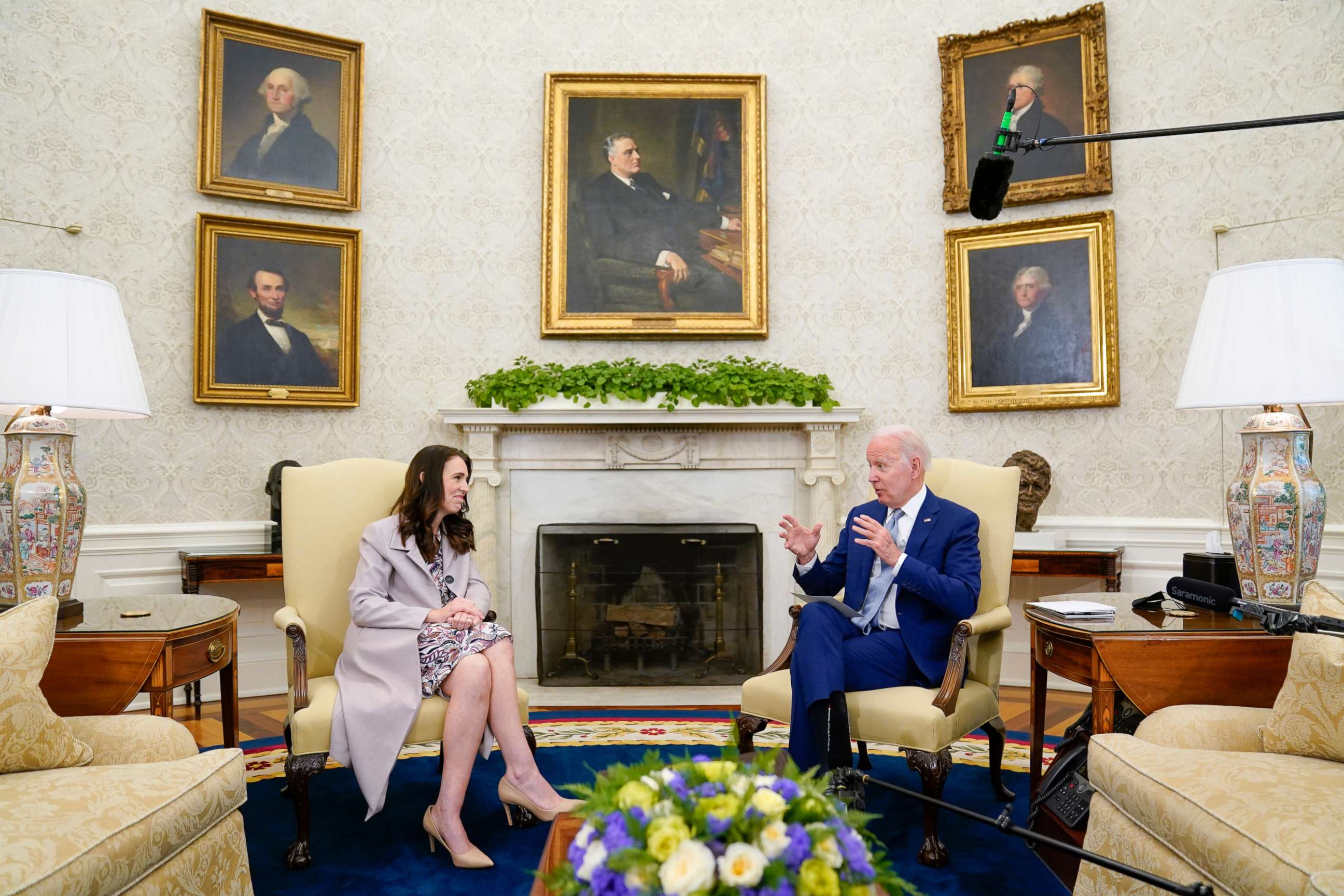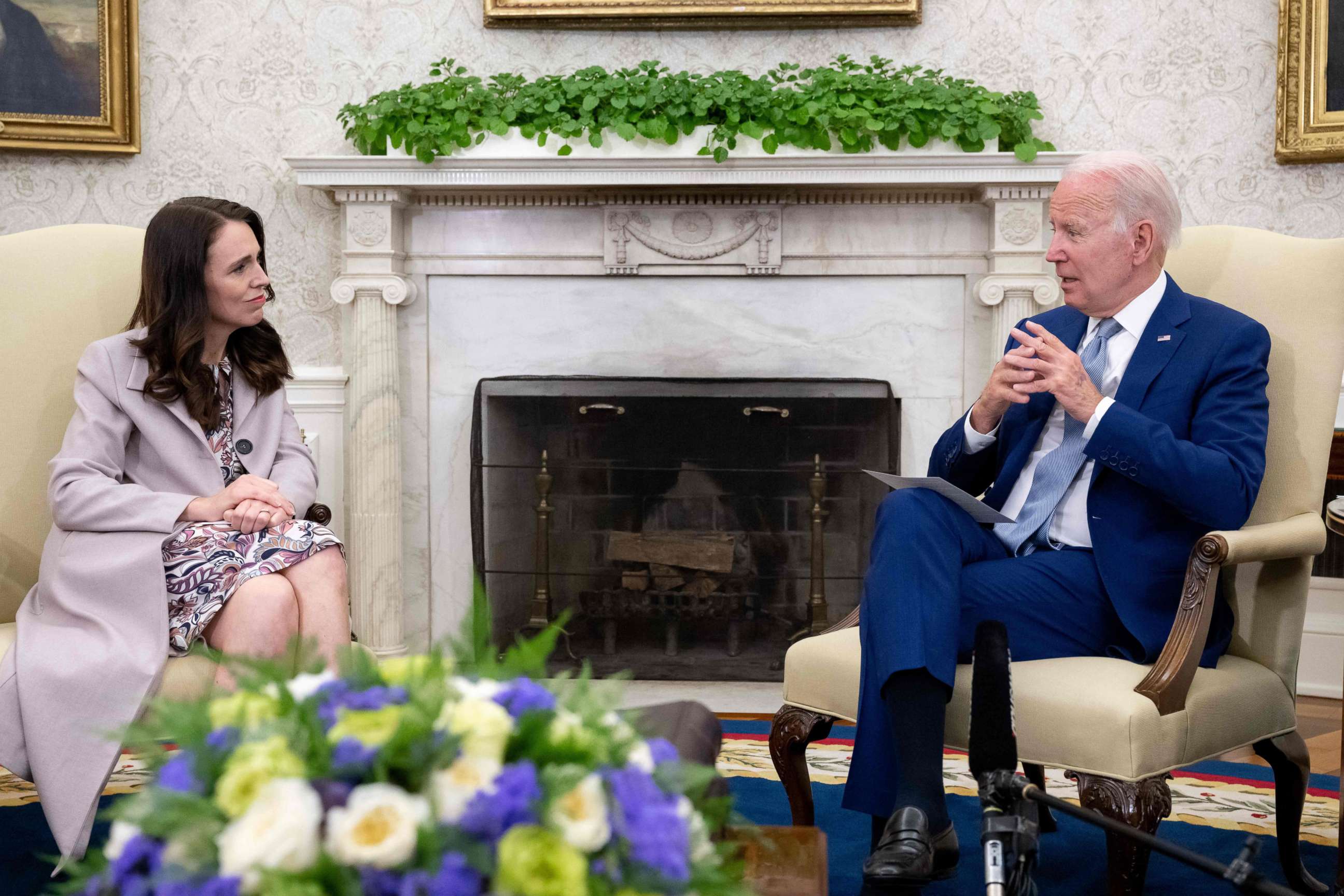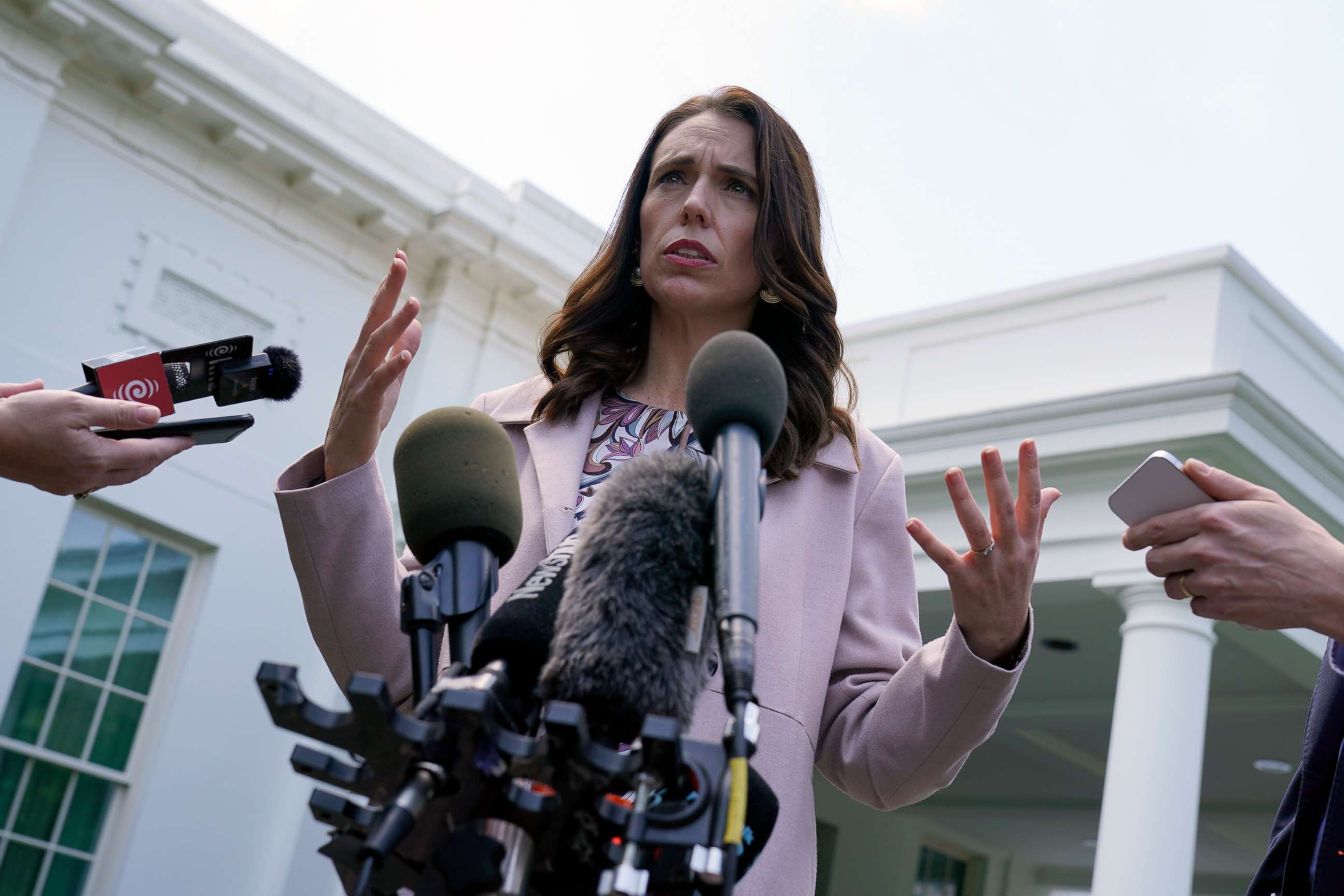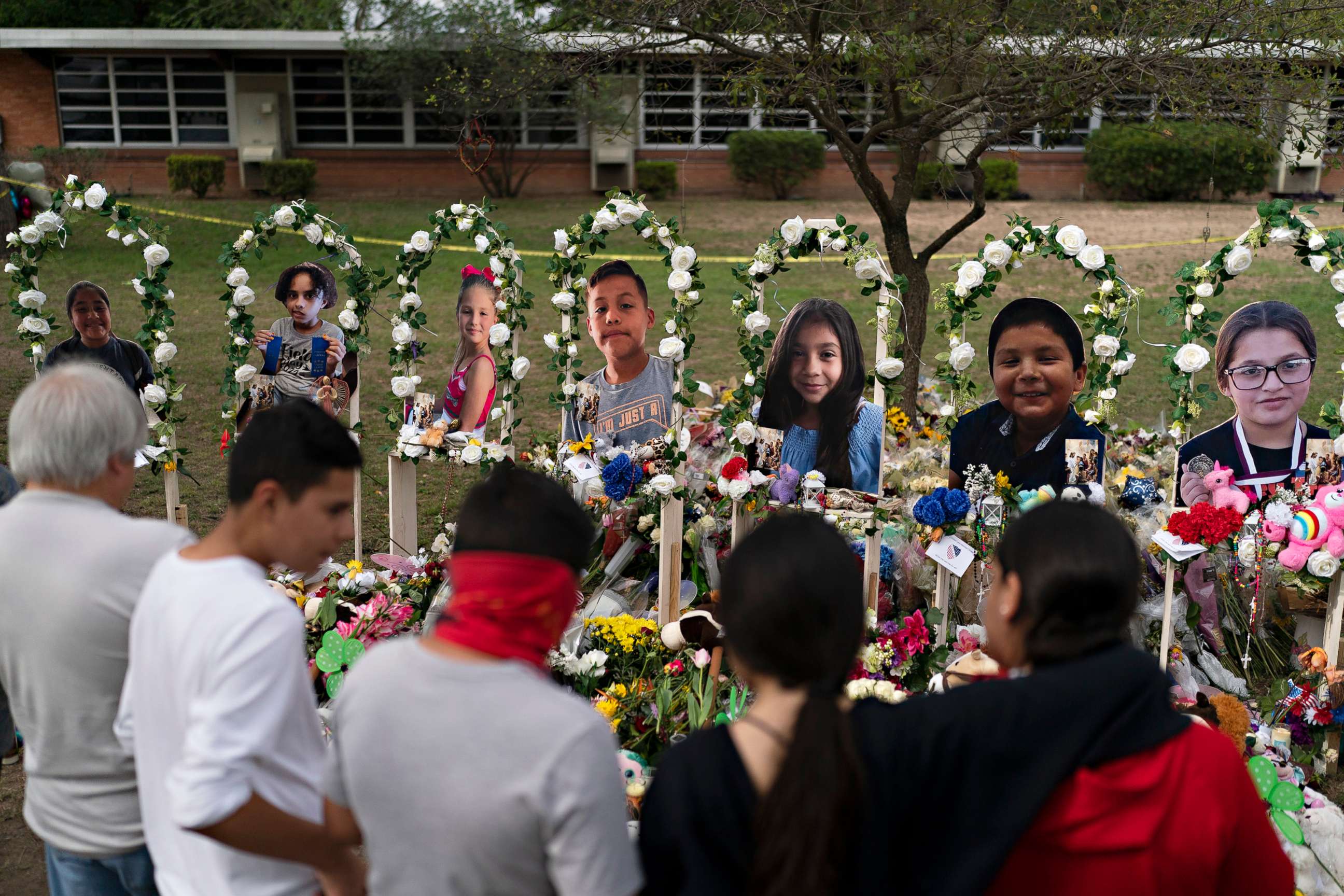Biden praises prime minister of New Zealand who offers condolences on US mass shootings
New Zealand moved ban most assault weapons after a mass shooting in 2019.
Following a holiday weekend with at least 12 mass shootings across the country, President Joe Biden met with New Zealand's Prime Minister Jacinda Ardern at the White House on Tuesday morning, as families in Uvalde, Texas, prepared tiny caskets for the first funerals this week.
Biden told reporters he would meet with lawmakers on the issue of guns, but he didn't say when that would happen or provide more details, according to the print pool reporter covering Biden's Oval Office meeting with New Zealand's prime minister.
Responding to a question about whether he'd meet with Senate Republican Leader Mitch McConnell about guns, Biden replied, "I will meet with the Congress on guns, I promise you," according to the print reporter.
Shortly before, inside the Oval Office, Biden praised Ardern's leadership on a range of issues and said, "We need your guidance."

"There's an expression by an Irish poet, it's 'too long a suffering that makes us stone to the heart.' Well, there's an awful lot of suffering," Biden told Ardern. "I've gotten to more mass shooting aftermaths than I think any president in American history, unfortunately...And so much of it, much of it, is preventable, and the devastation is amazing."
The two leaders were set to discuss combatting terrorism and radicalization to violence, the climate crisis, and the Indo-Pacific economy, according to the White House, but Ardern's appearance in the wake of the elementary school massacre offered a side-by-side picture of two Western nations with starkly different responses to gun violence.
After a gunman murdered 51 people at two mosques in Christchurch, New Zealand, in 2019, and streamed it on Facebook as it happened, Ardern led a dramatic push to restrict firearms in New Zealand within weeks of the attack. Less than a month after the attack, all but one of 120 Kiwi lawmakers voted to permanently ban military-style semiautomatic weapons and assault rifles.
"Can I bring the sincere condolences from the people of Aotearoa New Zealand for what you have experienced and Texas and New York, and it's been devastating to see the impact on those communities," Ardern said, also raising a mass shooting in Buffalo, New York, this month where ten Black people were killed in a grocery store.
"Our experience, of course, in this regard, is our own but if there's anything that we can share that would be of any value, we are here to share it," she added.
In the U.S., meanwhile, gun control legislation has remained stalled for decades as Senate Republicans have used, or threatened to use, the filibuster to block such legislation. A small group of bipartisan senators -- including Sens. Chris Murphy, D-Conn., John Cornyn, R-Texas, Tom Tillis, R-N.C., and Kyrsten Sinema, D-Ariz., are meeting by Zoom Tuesday afternoon on gun reform talks, multiple sources told ABC News, as advocates and everyday Americans alike demand action in the wake of the latest violence.

Outside the White House after their meeting, Ardern said she shared "reflections" with Biden about her country's experiences imposing gun restrictions and combatting extremism after the Christchurch massacre.
"The New Zealand public had an expectation that if we knew what the problem was that we -- that we do something about it," she told reporters, adding, "Our experience demonstrated our need for gun reform."
Ardern said she told Biden about "what we experienced and how we put forward that reform, some of the issues we encountered."

Asked last week about New Zealand's decision to ban most semi-automatic weapons and assault rifles in 2019, Ardern explained to CBS host Stephen Colbert how the country introduced a system to buy back guns from civilians and destroy them.
"I can only speak to our experience in New Zealand, but you know when I watch from afar and see events such as those today I think of them not as a politician, I see them just as a mother and I'm so sorry for what has happened here," Ardern said.
"Then I think about what happened to us and all I can reflect is -- we are a very pragmatic people. When we saw something like that happen everyone said 'never again,' so then it was incumbent on us as politicians to respond to that," she continued. "Now, we have legitimate needs for guns in our country for things like pest control and to protect our biodiversity, but you don't need a military-style, semi-automatic weapon to do that. So we got rid of them."

After Biden told protesters in Uvalde on Sunday "we will" when they demanded the U.S. "do something," it's unclear if the president will get more involved on the issue since largely punting action to Congress. Biden has suggested assault weapons be banned and that lawmakers revisit the 1994 law but said in Texas, "I can't outlaw a weapon. I can't change the background checks."
Tuesday also marks the first White House visit of a leader from New Zealand since 2014.



